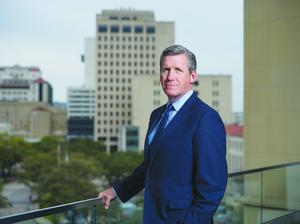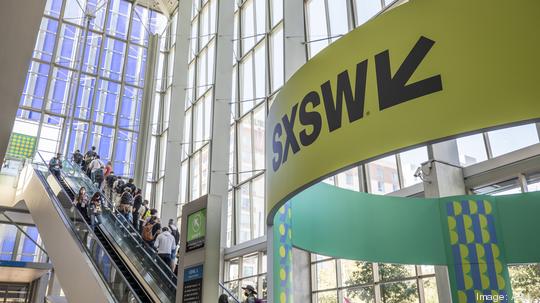
Venture capital firms were as abundant as ever at South by Southwest in Austin earlier this month, spending on parties and scouting panels and coffee shops for deals.
But amid the energy of a return to an in-person SXSW, many highly regarded figures from the VC and startup worlds acknowledged that storm clouds might be forming on the horizon.
Scott Galloway — a professor at the NYU Stern School of Business and a colorful Twitter personality with hundreds of thousands of followers — predicted during a panel that there will be a wave of layoffs at tech unicorns over the next 12 months. He also anticipates many private tech companies will see "down rounds," when they raise additional capital but at a lower valuation than a prior funding round.
So what would turmoil in the funding ecosystem mean for startups in Central Texas? Austin Business Journal caught up with prominent venture capitalists during SXSW to take the temperature of the local funding ecosystem.
Stock market ripple effects
One cause of concern has been the muted stock market reaction to some of 2021's tech initial public offerings. Robinhood Markets Inc., which created an app for commission-free stock trading, saw its market capitalization dip 68% between its July 2021 IPO and March 2, according to PitchBook data. Video game maker Roblox Corp.'s market cap fell 35% between its March 2021 IPO and March 2, while cryptocurrency exchange Coinbase Global Inc. saw a 50% drop between its April 2021 IPO and March 2.
That volatility has left many large private companies wondering if it might be wise to hold off on going public — although there's no guarantee market conditions will improve.
“How do you know next year is going to be better than this year, or the year after that is going to be better than this year?” said Morgan Flager, managing partner at Austin-based venture capital firm Silverton Partners. “Eventually, you’ve just got to bite the bullet and go public.”
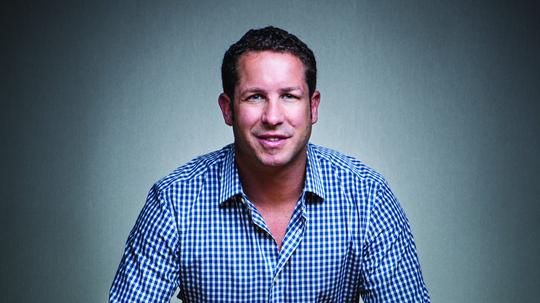
Flager said private investments haven’t yet adjusted to the public market volatility.
“What’s happening right now is a little bit like a car crash in slow motion,” Flager said March 15. “Because you see what’s happened in the public markets — it’s been a pretty good rout in the public markets. Yet, the private stuff hasn’t really moved that much. … There’s a ton of capital in the ecosystem.”
When these conditions do trickle down to private financing, expect companies to look at slimming down on expenses, experts said.
“If the public markets aren’t able to support the huge number of unicorns and late-stage companies going public, they are probably going to have to figure out a way to restructure their organization and make sure they are running a bit tighter than they have been,” said Kyle Stanford, an analyst at PitchBook.
And those that stumble during such times could be forced into fundraising at flat or reduced valuations — and potentially worse.
“Some of these companies will go out of business,” Flager said. “It’s been running hot for a long time. At some point the bloom has to come off the rose a little bit.”
A startup taking too much money sometimes "breeds unhealthy thinking and behavior," Flager added. That could mean deferring difficult decisions about a company’s trajectory. Any troubles that arise only multiply when a company starts missing revenue forecasts and laying off employees.
“Pulling back is always hard, especially in this labor market,” Flager said. “Wages are up, hiring is super competitive — retaining people in this market is hard enough.”
Tyler Norwood, U.S. managing partner at Singapore-based venture capital firm Antler, said late-stage tech companies that have taken advantage of free-flowing capital and high valuations are going to be in for "a really tough time" — especially if they're not yet profitable.
Norwood also thinks down rounds are "likely" in the future for some tech companies, and noted such developments are "almost always" accompanied by layoffs.
“It’s going to incorporate a lot of cost cutting," he said.
A disruption in VC could prove especially harmful for groups of founders who already struggle to access capital.
During a SXSW panel, Everly Health founder and CEO Julia Cheek lamented that female founding teams still receive only about 2.1% of venture capital money.

Cheek noted that she “didn’t get an institutional backer until I was doing double-digit millions” in revenue. She shared an anecdote about getting initial funding only after her husband mentioned Cheek’s company to a friend at a bar, who then mentioned it to another friend on the golf course.
Arlan Hamilton, founder and managing partner of Backstage Capital, at another panel offered this succinct advice for entrepreneurs seeking funding: “Be hungry, not thirsty.”
Possible silver linings
Conversely, a turbulent public market provides opportunity for private companies to reassess what they are doing and, potentially, refocus their business models to find a quicker path to profitability.
“When everything is going really well, over time people gradually get away from fundamentals,” Norwood said. “What is your actual revenue? If your last round was at a billion dollars, and it was built off a 100x multiple of your top-line revenue, it’s probably not worth a billion dollars, unfortunately.”
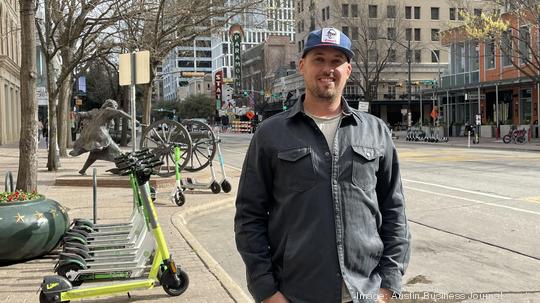
Flager agreed, noting that if companies can use their cash on hand to maintain peak performance over the next 12 months, "they’ll probably be fine and may even raise prices."
And public market volatility doesn't change the fact that there is still a record amount of "dry powder" amassed by venture capital firms. VC firms have already raised $50 billion this year to turn into startup investments, according to PitchBook. Numerous Austin-based firms have announced nine-figure funds in the first three months of the year, including LiveOak Venture Partners and S3 Ventures.
"So for companies that maybe just need a little bit extra to get through the headwinds we’re seeing right now, there is still going to be a lot of capital available," Stanford said.
What it means for Austin
Disruption could actually benefit an emerging city such as Austin. Singapore-based Antler recently set up an Austin office and used SXSW to introduce itself to local media and entrepreneurs.
“We’re very long on Austin as a technology hub,” Norwood said. “Austin has all the component pieces to be 10x larger from an innovation perspective.”
The firm has a $35 million fund for pre-seed investments in the United States, and Norwood said he expects to invest between $3 million and $8 million into Austin-based companies in the next year and a half.
Multiple experts pointed to financial technology as perhaps the next breakthrough sector for Austin startups, following in the footsteps of companies that have gone public like Q2 Holdings Inc.
Stanford said the Covid-19 pandemic “really shined a light on the need for a cashless system” that allows people to move capital more freely. Norwood agreed that Austin is well-positioned in the sector, noting that fintech born out of places like New York and San Francisco often caters to "coastal, urban city dwellers.”
“What are some problems that are affecting people that can’t afford to live in New York City, or can’t afford to live in San Francisco? Because those Americans’ lives are very different from the Americans who can afford to live there,” Norwood said. “Giving people access to financial products and financial services can be really game-changing. We’ve got a lot of fintech investments in our portfolio.”
During his own panel, famed investor Jim Breyer — who in 2020 opened an Austin office for his venture capital and private equity firm, Breyer Capital LLC — noted that “the best and the brightest today are moving into crypto, AI and sustainability.”
Breyer was joined on the stage by Michael Dell, Dell Technologies Inc.'s founder, chairman and CEO. He cited health care as a sector where Austin — straddling the intersection of computation and life sciences — could end up becoming a significant hub.
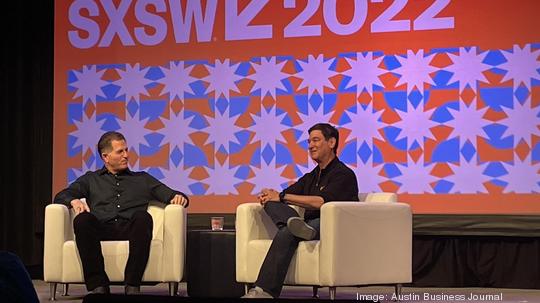
“Cancer is an area where I think in the next 10 years there could be tremendous breakthroughs,” Dell said.
Flager, too, has “been spending a ton of time in digital health” since the pandemic changed the way people think about the sector.
Silverton has invested in telehealth startups such as Austin-based Wheel Health Inc., which in January announced a $150 million series C round.
“The long-term water level is completely different than what it was pre-Covid,” Flager said of telehealth. “People are comfortable, for the most part, doing telehealth appointments…you can’t put that genie back in the bottle.”
Brent Wistrom contributed to this story.


